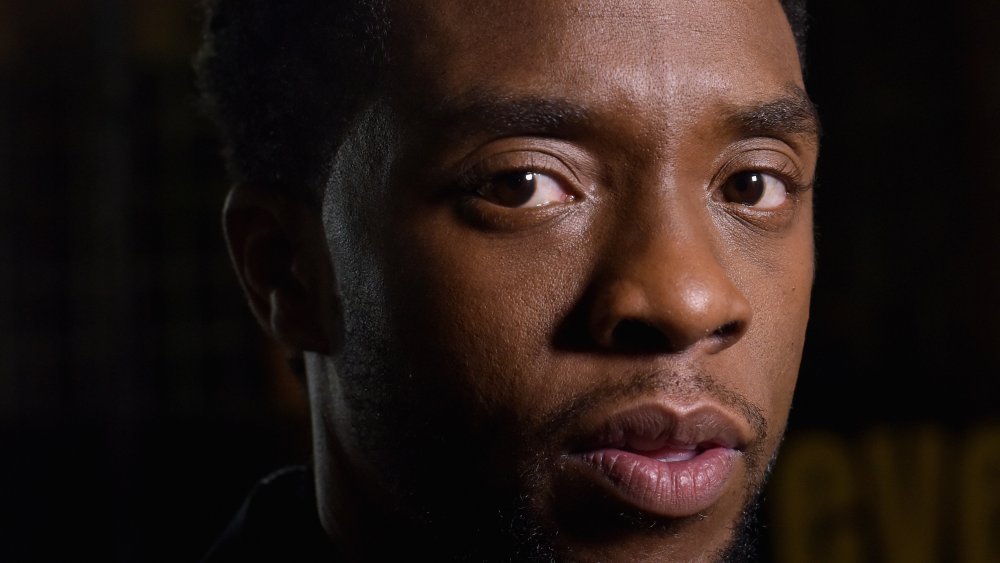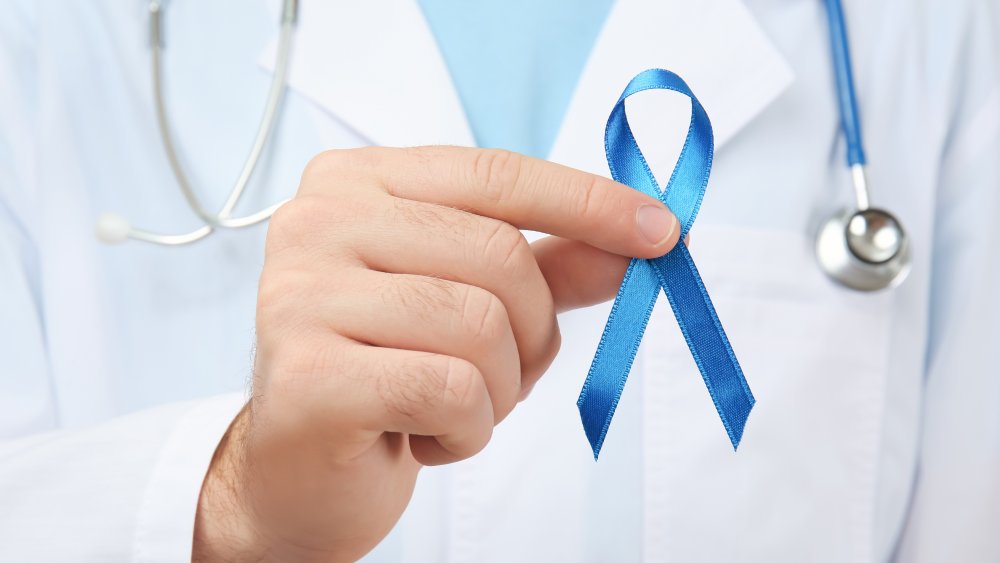Younger People Are At Risk For Colon Cancer. Here's What You Need To Know
When Black Panther star Chadwick Boseman passed away last week at the age of 43, it not only saddened but shocked fans worldwide. Despite the fact that the star had been seen to have lost a significant amount of weight over the past few months, it seems nobody really knew he was sick. Once the news came out, the shock diminished not one bit when it was revealed that he'd been suffering from colon cancer. How could this be? Wasn't he too young for such a disease? For most of us, worrying about our colons and wondering if we'll really need to put ourselves through the dreaded ordeal of a colonoscopy is something we tend to defer to "stuff we'll maybe think about once we're old enough for the seniors' menu at IHOP."
Well, it seems we'll all have to think again. Disturbing news from the American Cancer Society points to the fact that rates of colorectal cancer among people aged 50 and under have been steadily on the rise since the 1990s.
What you should know about colon cancer
Colon, or colorectal, cancer is one of the leading causes of cancer deaths among both men and women. According to the American Cancer Society, this cancer typically begins with non-cancerous growths called polyps on the inner lining of the colon. If these polyps are detected in time, then they can be removed before cancer starts. Even if they have turned cancerous by the time of screening, this cancer is still curable in its early stages. If the polyps go undetected until cancer has reached an advanced stage, though, the farther it spreads, the lower your chances of survival.
Data from the ACS shows that localized colon cancer (cancer that has not yet spread outside the colon or rectum) has a 90 percent 5-year survival rate, but that plummets to a 14 percent 5-year-survival rate once the cancer has spread to distant areas of the body such as the liver or lungs.
So when should you get screened for colon cancer? CNN reports that many medical organizations are still recommending that colon cancer screenings start at age 50, but says that the ACS has changed their position in light of recent data showing rising rates among younger people. They now suggest getting screened by age 45 if you are of average risk; sooner if you have any risk factors such as a family history of colon cancer or if you suffer from any inflammatory bowel diseases such as ulcerative colitis or Crohn's.
What factors affect your likelihood of contracting colon cancer?
There are also certain groups that are at higher risk of contracting colon cancer. The American Cancer Society notes that men tend to experience the disease at a higher rate than women, although for the most part, this age disparity does not kick in until age 55. Their data also indicates that the highest-risk groups are African Americans and Native Americans, although they speculate that this risk may be driven by the fact that many individuals in these groups have less access to timely, high-quality health care. An additional factor that affects Alaskan Natives, a group with a colon cancer mortality rate nearly double that of African Americans and triple that of Caucasians (via CNN), may be the prevalence of the Helicobacter pylori bacteria in the water (via ACS).
Lifestyle also seems to play a role in determining your danger level, as the ACS points out that smoking, high-fat diets, inadequate consumption of fruits and vegetables, vitamin D deficiency, and obesity all seem to be risk factors for colon cancer. According to Rebecca Siegel, ACS scientific director of surveillance research: "Diet has a large influence on colorectal cancer risk." She says research is ongoing as to specifically what foods or medications might increase the likelihood of contracting colon cancer, but in the meantime, your best bet is to eat healthily, don't smoke, and be sure to get screened by 45 — or even sooner — if your doctor recommends that you do.



